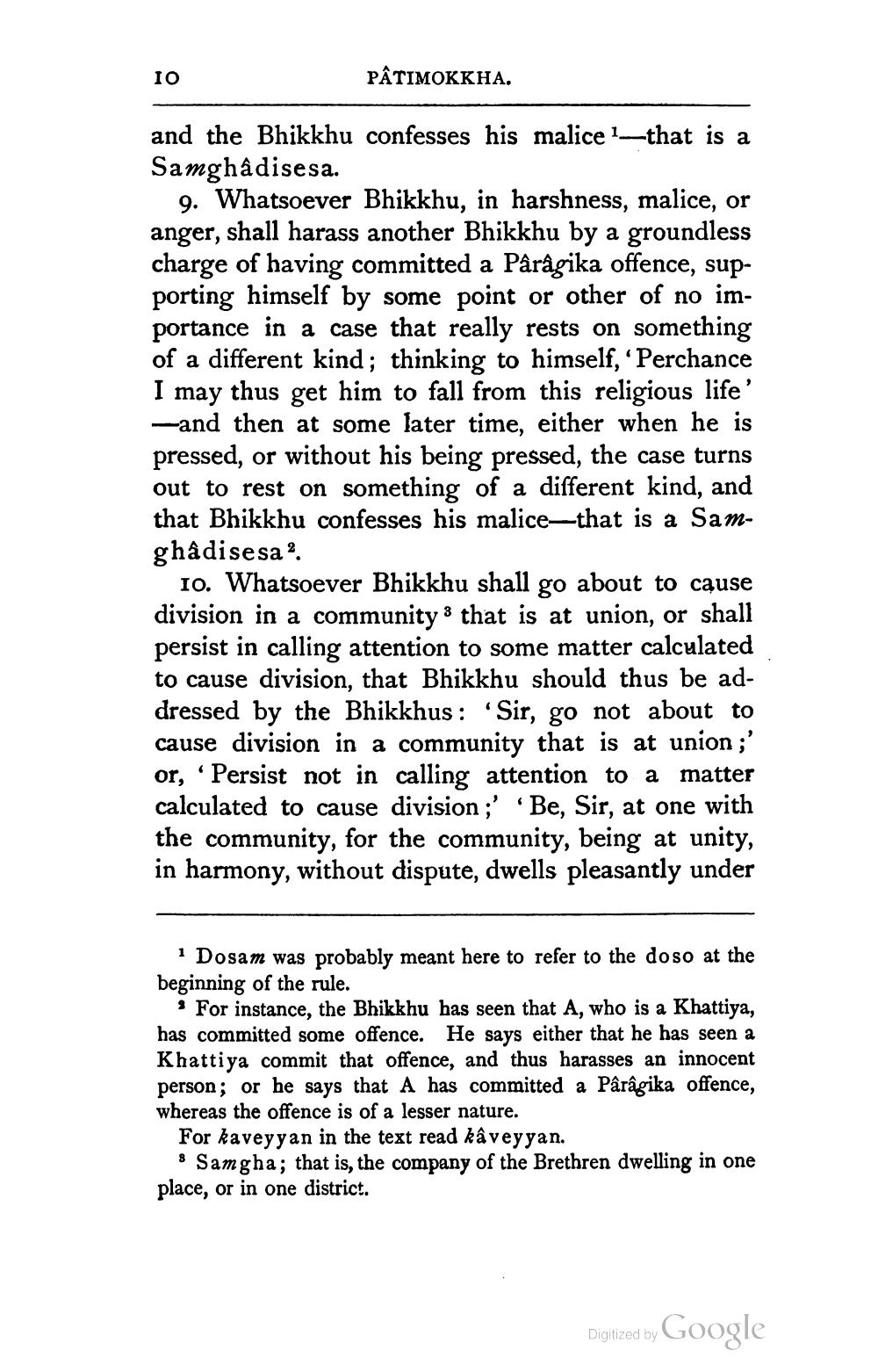________________
10
PÂTIMOKKHA.
and the Bhikkhu confesses his malice 1—that is a Samghâdisesa.
9. Whatsoever Bhikkhu, in harshness, malice, or anger, shall harass another Bhikkhu by a groundless charge of having committed a Pârâgika offence, supporting himself by some point or other of no importance in a case that really rests on something of a different kind; thinking to himself, 'Perchance I may thus get him to fall from this religious life' --and then at some later time, either when he is pressed, or without his being pressed, the case turns out to rest on something of a different kind, and that Bhikkhu confesses his malice-that is a Samghâdisesa?.
10. Whatsoever Bhikkhu shall go about to cause division in a community that is at union, or shall persist in calling attention to some matter calculated to cause division, that Bhikkhu should thus be addressed by the Bhikkhus: 'Sir, go not about to cause division in a community that is at union ;' or, ‘Persist not in calling attention to a matter calculated to cause division ;' 'Be, Sir, at one with the community, for the community, being at unity, in harmony, without dispute, dwells pleasantly under
1 Dosam was probably meant here to refer to the doso at the beginning of the rule.
. For instance, the Bhikkhu has seen that A, who is a Khattiya, has committed some offence. He says either that he has seen a Khattiya commit that offence, and thus harasses an innocent person; or he says that A has committed a Pârâgika offence, whereas the offence is of a lesser nature.
For kaveyyan in the text read kâveyyan.
8 Samgha; that is, the company of the Brethren dwelling in one place, or in one district.
Digitized by Google




